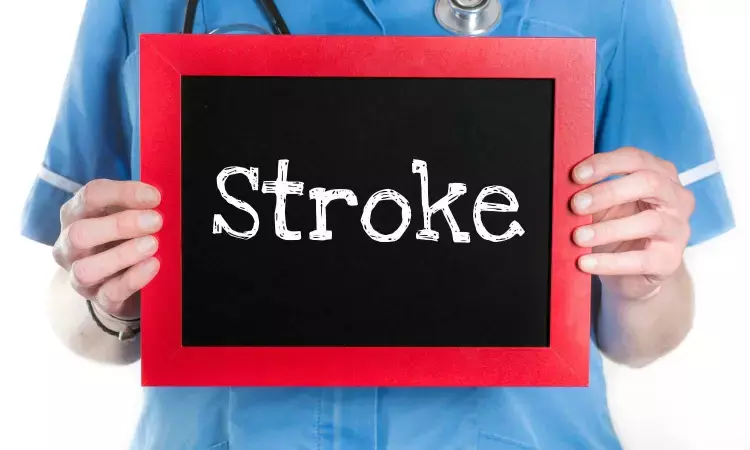- Home
- Medical news & Guidelines
- Anesthesiology
- Cardiology and CTVS
- Critical Care
- Dentistry
- Dermatology
- Diabetes and Endocrinology
- ENT
- Gastroenterology
- Medicine
- Nephrology
- Neurology
- Obstretics-Gynaecology
- Oncology
- Ophthalmology
- Orthopaedics
- Pediatrics-Neonatology
- Psychiatry
- Pulmonology
- Radiology
- Surgery
- Urology
- Laboratory Medicine
- Diet
- Nursing
- Paramedical
- Physiotherapy
- Health news
- Fact Check
- Bone Health Fact Check
- Brain Health Fact Check
- Cancer Related Fact Check
- Child Care Fact Check
- Dental and oral health fact check
- Diabetes and metabolic health fact check
- Diet and Nutrition Fact Check
- Eye and ENT Care Fact Check
- Fitness fact check
- Gut health fact check
- Heart health fact check
- Kidney health fact check
- Medical education fact check
- Men's health fact check
- Respiratory fact check
- Skin and hair care fact check
- Vaccine and Immunization fact check
- Women's health fact check
- AYUSH
- State News
- Andaman and Nicobar Islands
- Andhra Pradesh
- Arunachal Pradesh
- Assam
- Bihar
- Chandigarh
- Chattisgarh
- Dadra and Nagar Haveli
- Daman and Diu
- Delhi
- Goa
- Gujarat
- Haryana
- Himachal Pradesh
- Jammu & Kashmir
- Jharkhand
- Karnataka
- Kerala
- Ladakh
- Lakshadweep
- Madhya Pradesh
- Maharashtra
- Manipur
- Meghalaya
- Mizoram
- Nagaland
- Odisha
- Puducherry
- Punjab
- Rajasthan
- Sikkim
- Tamil Nadu
- Telangana
- Tripura
- Uttar Pradesh
- Uttrakhand
- West Bengal
- Medical Education
- Industry
Remote Ischemic Conditioning in Acute Stroke: A Disheartening Verdict from Rigorous Trials

In the relentless pursuit of groundbreaking stroke treatments, the medical community has explored various avenues, including remote ischemic conditioning (RIC). Initial excitement surrounded RIC with promising preclinical and clinical data suggesting its potential efficacy. However, a recent comprehensive clinical trial has challenged these optimistic expectations, dealing a significant blow to the hopes of revolutionizing acute stroke care.
RIC is a simple and noninvasive procedure involving transient cycles of limb ischemia and reperfusion on the upper extremity leading to distant organ protection in preclinical and clinical studies. The early effects exhibit enhanced collateral blood flow in the ischemic area and reduced post-stroke inflammation. Previous studies showed significantly improved functional outcomes in acute ischemic stroke. However, due to some uncertainty Danish researchers conducted a randomized, sham-controlled, multicenter clinical trial to determine whether combined prehospital and in-hospital RIC treatment improves functional outcomes in patients with acute ischemic and hemorrhagic stroke.
The trial, conducted from March 2018 to November 2022, enrolled 1,500 patients with prehospital stroke symptoms lasting less than four hours. The study aimed to assess the impact of RIC initiated in the prehospital setting and continued in the hospital. Patients were randomly divided into two groups: one receiving RIC treatment and the other a sham treatment. The primary measure of success was an improvement in functional outcomes, evaluated on the modified Rankin Scale (mRS), 90 days post-stroke.
Findings:
- The results, however, were far from what researchers and medical professionals had hoped for. Among the 902 stroke-diagnosed patients, RIC failed to significantly enhance functional outcomes at the critical 90-day mark.
- The mRS scores revealed no substantial difference between the group that received RIC (mRS score at 90 days was 2) and the one subjected to the sham treatment (mRS score at 90 days was 1).
- Moreover, both groups experienced a similar number of serious adverse events (RIC vs Sham 169 vs 175), indicating that RIC did not provide a safer alternative.
- Interestingly, upper extremity pain during treatment and skin petechia were notably higher in the RIC group, highlighting the discomfort associated with this intervention.
Thus, this study deals a significant blow to the hopes pinned on RIC as a groundbreaking stroke treatment. Despite its promise in prior studies, the meticulous scrutiny of a randomized clinical trial has shown that RIC, when initiated in the prehospital phase and sustained in the hospital, does not yield meaningful improvements in stroke patients' functional outcomes.
Further reading: Blauenfeldt RA, Hjort N, Valentin JB, et al. Remote Ischemic Conditioning for Acute Stroke: The RESIST Randomized Clinical Trial. JAMA. 2023;330(13):1236–1246. doi:10.1001/jama.2023.16893
BDS, MDS
Dr.Niharika Harsha B (BDS,MDS) completed her BDS from Govt Dental College, Hyderabad and MDS from Dr.NTR University of health sciences(Now Kaloji Rao University). She has 4 years of private dental practice and worked for 2 years as Consultant Oral Radiologist at a Dental Imaging Centre in Hyderabad. She worked as Research Assistant and scientific writer in the development of Oral Anti cancer screening device with her seniors. She has a deep intriguing wish in writing highly engaging, captivating and informative medical content for a wider audience. She can be contacted at editorial@medicaldialogues.in.
Dr Kamal Kant Kohli-MBBS, DTCD- a chest specialist with more than 30 years of practice and a flair for writing clinical articles, Dr Kamal Kant Kohli joined Medical Dialogues as a Chief Editor of Medical News. Besides writing articles, as an editor, he proofreads and verifies all the medical content published on Medical Dialogues including those coming from journals, studies,medical conferences,guidelines etc. Email: drkohli@medicaldialogues.in. Contact no. 011-43720751




